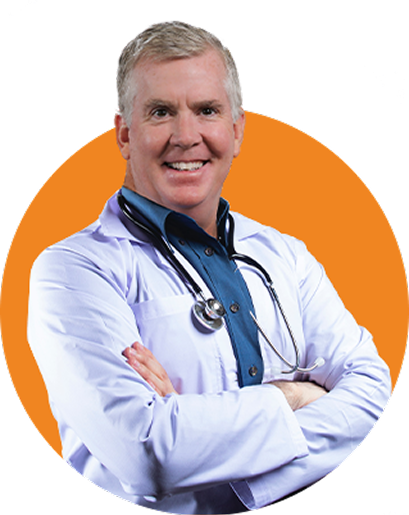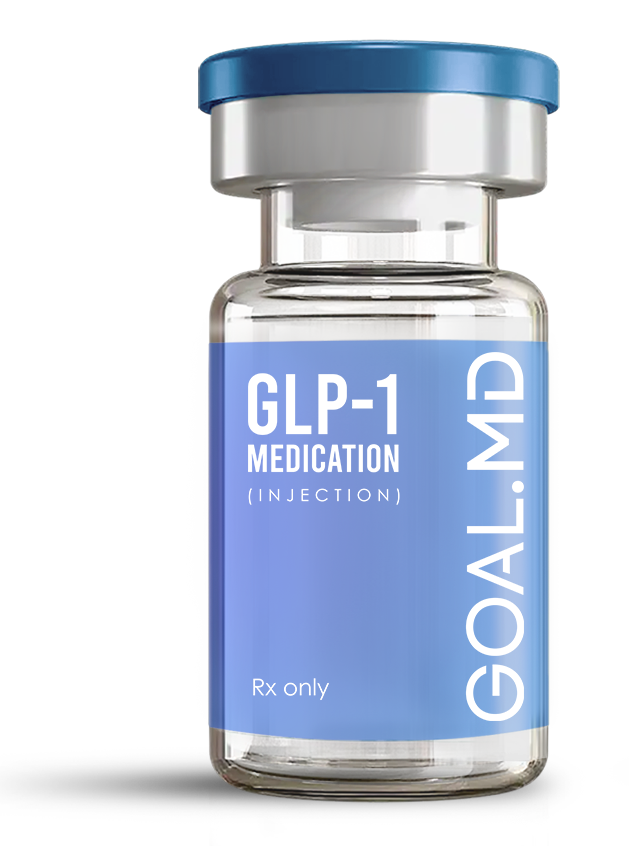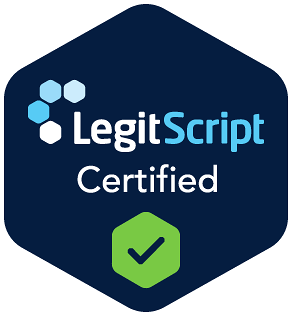
GOAL.MD Health & Wellness Blog
Evidence-based insights, medical weight loss information, and practical tips from our physicians and healthcare experts.

Are You Eating Too Little to Lose Weight on GLP-1s?
When “Eating Less” Becomes “Eating Too Little”
GLP-1s like semaglutide and tirzepatideare designed to help you eat less—and they do that really well. But sometimes, they work a little too well. Many patients reach a point where their appetite dips so low that they’re barely eating at all.
At first, that can feel like progress. Smaller portions, skipped meals—it sounds like weight loss should be easy from here.
But here’s the truth: when you eat too little, your body starts slowing down to conserve energy. Instead of burning fat efficiently, it hits the brakes—and your progress can stall.
👉 At Goal.md, providers coach patients to eat enough to lose weight safely—not as little as possible.

Why Eating Too Little Can Stall Your Progress
1. Your Metabolism Starts to Downshift
When calories drop too low, your body sees it as a sign of scarcity. It responds by burning fewer calories—especially from fat—to protect itself.
That’s not failure. It’s your body doing its job to survive. But it also means that extreme restriction can make fat loss slower, not faster.
2. You Lose Muscle Instead of Fat
If your meals don’t include enough protein or calories, your body turns to muscle for energy.
Less muscle means a slower metabolism, which makes future weight loss even harder.
That’s why protein matters—it helps you burn fat while keeping your metabolism strong.
👉 Goal.md helps patients meet daily protein goals, even when appetite is low.
3. Low Energy = Less Movement
When you’re under-fueled, your body naturally wants to move less. You might not realize it, but fatigue makes you fidget less, walk less, and even breathe a little slower—all small things that add up.
So while you may be eating less, you’re also burning less. That balance can cancel out progress.
4. Your Body Starts Holding Onto Water
Here’s the sneaky part: when you eat too little, your body can actually hold onto water as a stress response. The scale might go up a few pounds, even though you’ve barely eaten.
That’s your body asking for balance, not punishment.
How to Tell You’re Not Eating Enough
You might be under-fueling if you notice:
Constant fatigue or lightheadedness
A stalled scale despite eating very little
Loss of strength or tone
Skipping meals because you “don’t feel hungry”
Forgetting to eat or dreading food
If any of these sound familiar, it’s time to shift your focus from restriction to replenishment.
What to Do Instead
✅ Focus on Quality Over Quantity
Choose foods that give you more nutrition per bite—lean proteins, fiber-rich carbs, and healthy fats. Think:
Eggs or Greek yogurt for breakfast
Salmon, tofu, or lentils for lunch
Nuts or olive oil for healthy fats
When you fuel with quality foods, your body stays strong and energized—even with smaller portions.
✅ Eat Small, Balanced Meals Regularly
If big meals feel overwhelming, go for smaller, frequent ones:
A protein smoothie
A boiled egg with fruit
Cottage cheese with berries
Half an avocado on whole-grain toast
Even 200–300 calories of the right foods can keep your metabolism humming.
✅ Stay Hydrated (and Don’t Forget Electrolytes)
Eating less often means you’re also getting less sodium and hydration. That can cause fatigue or nausea.
Drink water throughout the day, and add electrolytes if you’re feeling drained.
👉 At Goal.md, patients learn how to balance hydration, electrolytes, and nutrition for steady progress.
Final Thoughts
GLP-1s make it easier to eat less—but that doesn’t mean you should barely eat. Your body still needs fuel to function, recover, and burn fat effectively.
If your progress has slowed despite smaller portions, you mightsimply need to eatmore of the right things.
This journey isn’t about restriction; it’s about rebuilding balance.Nourish your body, trust the process, and let your metabolism do what it was designed to do.
✅ Medically Reviewed by Dr. Michael Fitch, MD
Last Reviewed: October 24, 2025
This article haD physician protocols. Individual results and recommendations may vary. Always consult a licensed clinician before beginning any medical pros been medically reviewed for accuracy and consistency with current clinical practice guidelines. All treatment descriptions reflect real GOAL.MD gram.

Dr. Michael Fitch, MD
Physician, GOAL.MD – Board-Certified in Internal Medicine
Dr. Fitch has treated thousands of patients using evidence-based medical weight-management therapies including GLP-1 and longevity-focused medications. He leads GOAL.MD’s national physician network and personally oversees treatment protocols for weight loss, metabolic health, and nutrition optimization.
👉 Click here and get started with Goal.md
The GOAL.MD blog is published by GOAL.MD, a medical practice dedicated to personalized, patient-centered weight management and metabolic health. Our mission is to make evidence-based care accessible through licensed providers and modern telemedicine services, empowering individuals to reach their health goals safely and sustainably. Any general health information shared on our blog, website, or social channels is provided for educational and informational purposes only. It should not be considered medical advice, diagnosis, or treatment. The content is not a substitute for consultation with a qualified healthcare professional who can provide individualized recommendations based on your specific medical history and needs. GOAL.MD and its affiliated providers make no representations or warranties and expressly disclaim all liability for any loss, injury, or damage resulting from reliance on the information provided herein. If you have questions about your health or a medical condition, please consult with a licensed medical professional before making changes to your medication, treatment plan, or lifestyle.
Why GOAL.MD?
✅ Sourced from audited 503a US compounding pharmacies.
✅ Custom dosages adjusted to your needs.
✅ Free consultation + 24/7 support.

How It Works
1. Quiz
90 seconds. No commitment.
2. Consult
Video chat with your GOAL.MD doctor.
3. Deliver
Meds at your door tomorrow.
Transform Your Life with Physician-Directed Care
Join thousands who've found success with physician-directed care. Take our 3-minute quiz to see if medical weight loss is right for you.







